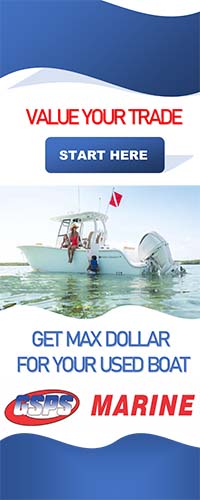
Buying the Right Type of Boat Trailer
 When it comes to boating, having the right trailer is as crucial as choosing the perfect boat. A good trailer not only ensures safe transport but also protects your investment. With so many options out there, selecting the right type of boat trailer can feel overwhelming. Here’s a guide to help you make an informed decision.
When it comes to boating, having the right trailer is as crucial as choosing the perfect boat. A good trailer not only ensures safe transport but also protects your investment. With so many options out there, selecting the right type of boat trailer can feel overwhelming. Here’s a guide to help you make an informed decision.
Understand Your Needs
Before diving into the types of trailers available, it's important to understand your individual needs. Consider the following aspects:
1. Boat Size and Weight: The size and weight of your boat are paramount in determining the right trailer. Trailers come in various sizes, and you need one that can safely support both the weight and length of your boat. Ensure you check your boat's specifications before shopping for a trailer.
2. Type of Boat: Different types of boats require different trailers. For example, if you have a flat-bottomed skiff, a simple bunk trailer might suffice. However, if you have a heavier or more complex boat (like a sailboat or a larger powerboat), you may need a specialized trailer designed for that model.
3. Usage: Determine how often you’ll be transporting your boat. If you plan to move your boat frequently, investing in a high-quality, durable trailer is critical. On the other hand, if your boat will mostly stay at a marina, a basic trailer might suffice.
Types of Boat Trailers
Here are the most common types of boat trailers you might consider:
1. Bunk Trailers: These trailers come with soft bunks that support the hull of the boat. They are excellent for watercraft with deep V-hulls. Bunk trailers are gentle on your boat but require a little more effort to retrieve and launch.
2. Roller Trailers: Ideal for boats with a flatter hull, roller trailers have rollers that support the boat's hull, making loading and unloading easier. They can make launching your boat from the water a breeze but may require more maintenance than bunk trailers.
3. Tilt Trailers: These trailers can tilt at an angle for easy loading and unloading. They are great for boats that are heavier and for those who frequently launch in shallow waters.
4. Aluminum vs. Steel: Trailers come in two main materials: aluminum and steel. Aluminum trailers are lighter and less prone to rust, making them a great long-term investment, especially in coastal areas. However, steel trailers, while heavier, often have a lower initial cost.
Features to Look For
After you’ve determined the type of trailer you need, consider additional features that can enhance your experience:
- Braking System: If you have a heavier boat, consider getting a trailer with a braking system to ensure safer stops.
- Adjustable Features: Look for trailers that allow for adjustments in length and width. This flexibility can make a big difference in how securely your boat is transported.
- Tongue Weight: Proper tongue weight (the balance between the trailer and vehicle) is essential for safe towing. Aim for a weight that is about 10-15% of the total boat and trailer weight.
Investing in the right boat trailer is essential for safe transport and protecting your beloved watercraft. By understanding your needs, exploring various trailer types, and considering essential features, you’ll be well-equipped to make a choice that suits your boating lifestyle.
At GSPS Marine in Gulf Shores, AL, we offer a wide selection of boat trailers to fit every kind of boat and boater. Our knowledgeable staff is here to help you find the right solution based on your unique needs. Stop by today, and let’s get you set up for your next adventure!
